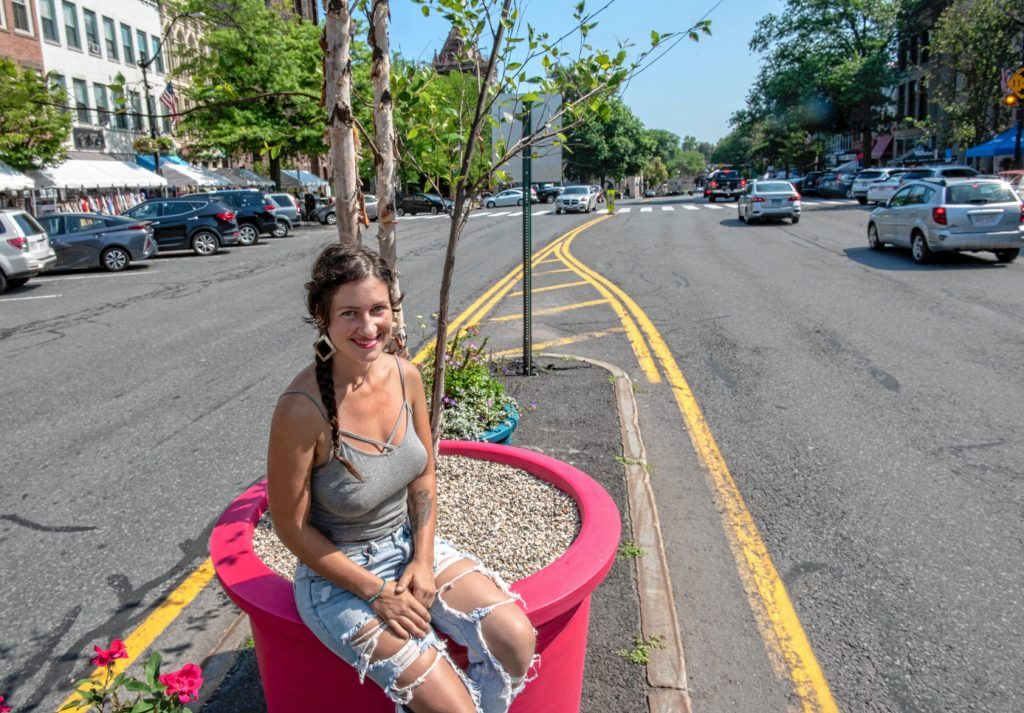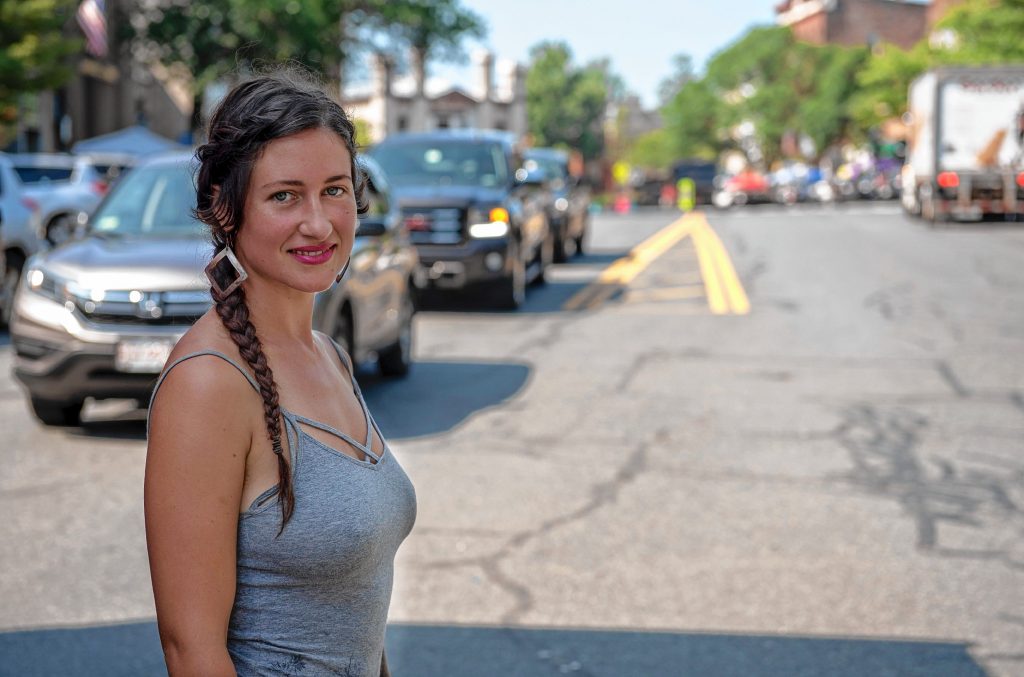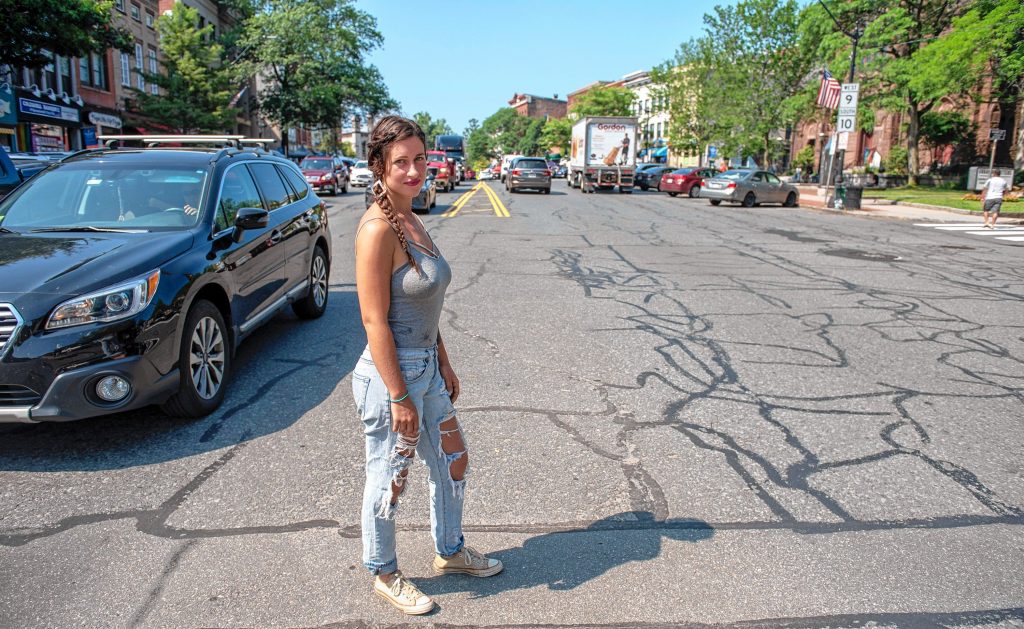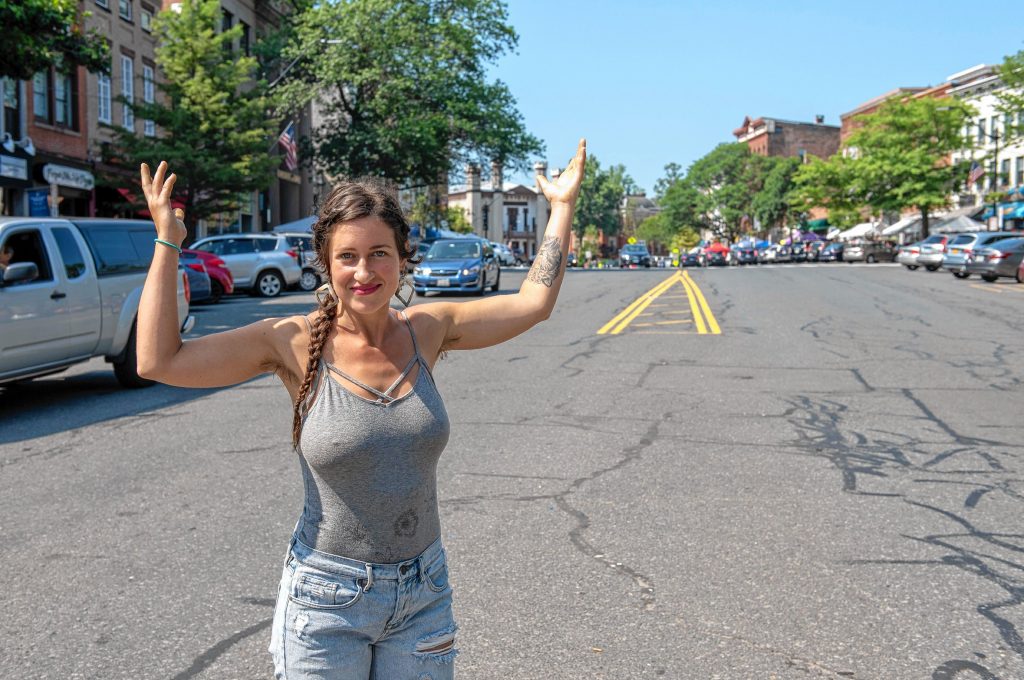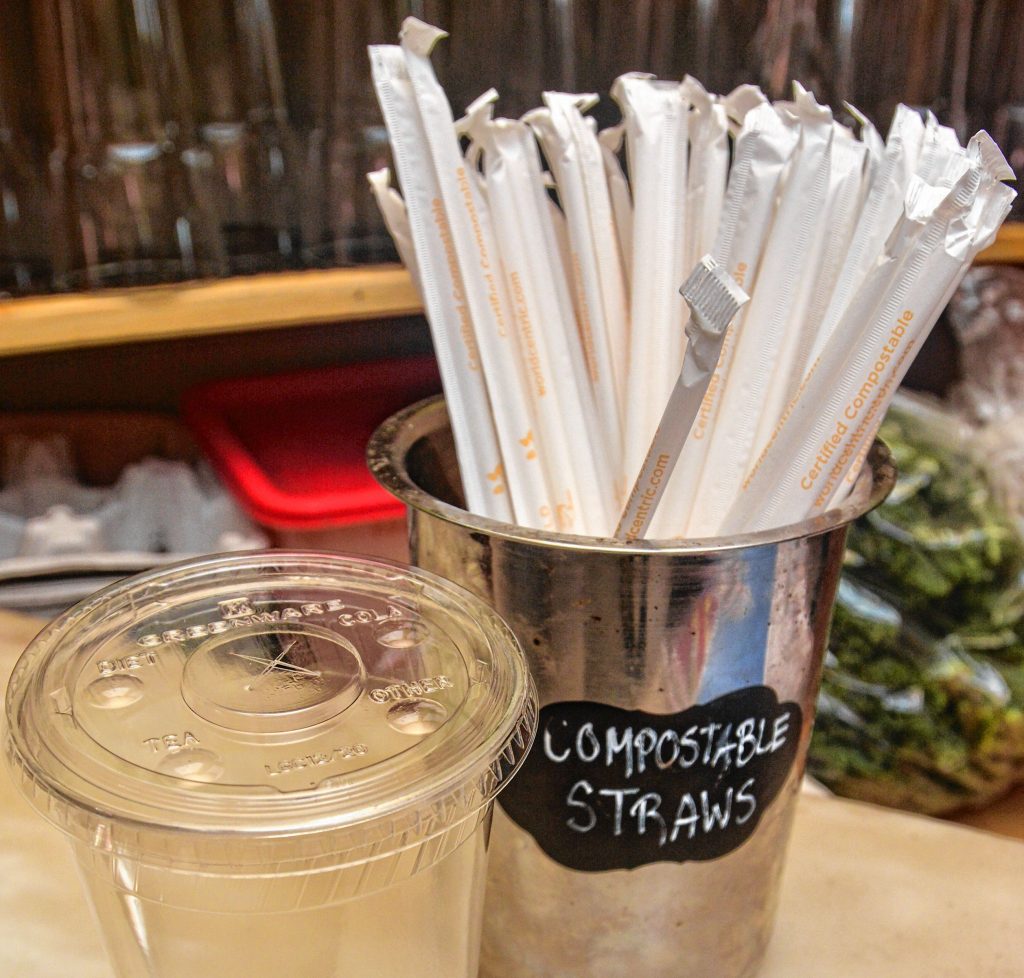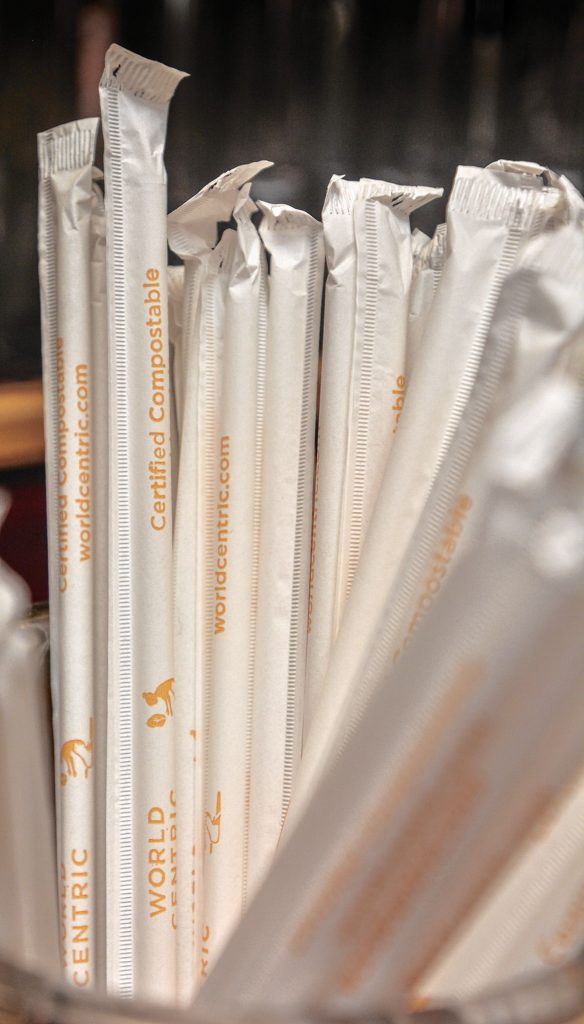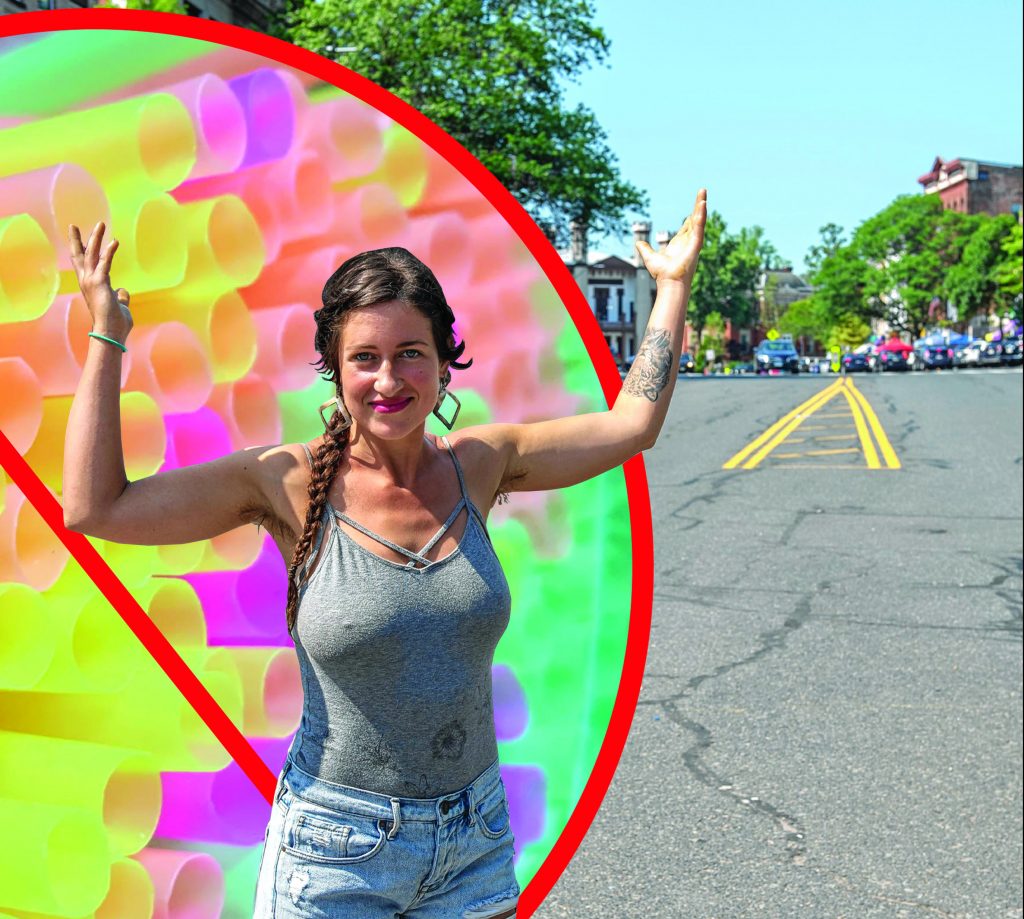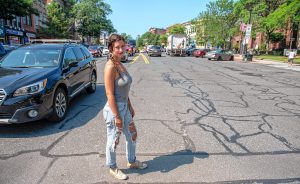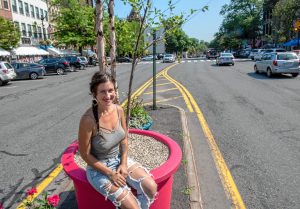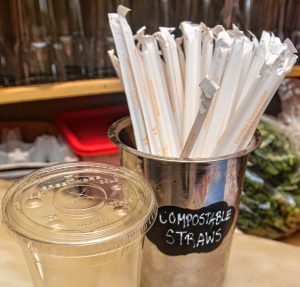Plastic has been labeled as one of the world’s biggest enemies in the fight against pollution. Before 2017, when China passed the National Sword policy, which effectively banned plastic waste from being imported, the United States and many other nations placed the burden of recycling their plastic waste on China. Now that this is no longer the case, less than 10 percent of American plastic waste is being recycled, according to the United States Environmental Protection Agency.
This dynamic has spurred discussion for banning certain plastic products throughout the country. Joining several municipalities and a few states throughout the country, Northampton banned single use plastic bags in 2015. Now, according to the Sierra Club, more than 120 Massachusetts communities representing more than half the state’s population ban plastic bags. Supermarket chain Big Y recently announced it is discontinuing use of plastic bags effective August 1.
University of Massachusetts graduate student Alula Shields is looking to continue the local fight against single-use plastic with a ban on plastic straws. She began the process of garnering support for an ordinance banning plastic straws two years ago.
“I started with the idea of the straw ban because straws aren’t something imperative for people to have and there are a lot of alternative solutions that are more sustainable,” said Shields, who is studying environmental conservation.
If Shields’ ordinance is passed, Northampton wouldn’t be the first city to enact a plastic straw ban. Eight cities in California have banned plastic straws, with some lawmakers looking to ban plastic straws state wide. Cities in Washington, New Jersey, and Florida have also banned plastic straws. A handful of municipalities in eastern Massachusetts have straw bans, as well.
In the Valley, Buckland this year enacted a ban of all single-use plastic items, including straws as well as styrofoam containers, plastic packaging and containers, and, of course, plastic bags. It passed by a unanimous vote at their Town Meeting.
Zack Turner, the Select Board chairman in Buckland who proposed and wrote the ban, said it goes into effect in July 2020. He said the ban received no resistance in town largely because restaurants and business owners were taking steps to eliminate plastic already.
“I’m hoping other people will jump on board,” he said. “I would love to see other towns just take it and run with it.”
Kelly Phillips, owner of Cliff’s Smokin Backyard BBQ and Catering, lives in Buckland but her business is based in Shelburne, across the river. While her business won’t be affected by Buckland’s single-use plastic ban, she said she is still taking steps to use less plastic.
“I try to be as green as possible in the hopes that, hey, this is going to be all about our children in the future,” she said.
Already at events she caters, her clients will often request she use compostable versions of silverware and other waste items that are usually made of plastic. They are more expensive — about triple in price — but getting plastic out of the landfill is important, she said.
In building support for a plastic straw ban in Northampton, Shields has spoken to local environmentalist groups such as Climate Action Now as well as taking to the streets to gather signatures for her petition. She also has an online petition on Change.org.
“Once I get to a certain level with signatures and garnering public support, I will then propose the ordinance to the city of Northampton, demonstrating the signatures, the level of support from the community members, and people who come to Northampton just for the eateries and for the stores, and presenting all the public comments as to why we should impose an ordinance on single use plastic straw ban,” said Shields.
Shields said she wants to get 1,000 signatures before presenting her straw ban proposal — far more than the 250 signatures the city requires for such proposals — in order to show the wide base of support for the ban. She plans to present her proposal to the City Council before the end of the summer, she said.
Once she does that, her ordinance can be passed in one of two ways. Either the mayor or one or more city councilors must sponsor the ordinance, or if none do, she would need to follow the initiative procedures in the Northampton City Charter, including acquiring 25 signatures from each ward in Northampton, being approved by the City Clerk, and having the question voted on in the form of a question in the next ballot.
With so many other plastic products and pollution harming the environment, it’s easy to question if it is worth the trouble to bring forward a resolution to ban plastic straws, but Shields is resolute.
“It’s hard to quantify the number of plastic straws thrown away every day,” said Shields, “but the estimates are somewhere between 500 million and a billion straws are thrown away in this country alone every day. Try to think of the mass that 1 billion straws takes up and that’s the waste produced every day in this country. If you think about all the eateries in every city, all the bars that put two plastic straws in every single beverage. Multiply that by 365 days in a year and think about all the plastic that creates. And that’s just one tiny piece of plastic that’s used for seconds and then thrown away.”
Northampton Mayor David Narkewicz says the city isn’t opposed to the idea of banning plastic items to benefit the environment, pointing to the city’s 2015 single use plastic bag ban. But with plastic straws, he raised concern for accommodation for the disabled. “This is something that would have to be looked at by the Disability Committee,” he said.
For some disabled citizens, straws are the only way in which they can consume food or drinks. Shields is aware of this issue, and provided some solutions.
“I’ve had a lot of discussions with people who have disabilities that express the need for straws to consume food or beverages. But there are a number of fantastic alternatives for plastic straws that include reusable alternatives such as straws made from bamboo, glass, or stainless steel. And on the market you can currently buy a biodegradable straw that’s made from cellulose. The texture and durability is uncanny to that of a plastic straw.”
The Bluebonnet Diner in Northampton currently uses plastic straws, but owner James Greco isn’t opposed to the ban. He said he hasn’t researched it much.
“I am definitely in support of improving the oceans and our environment. If the ban was passed, we would comply and have to find an alternative for plastic straws,” he said.
Transitioning from plastic straws isn’t always easy. The Haymarket Cafe has been using greenware to replace plastic items for over a decade now.
“When it came to plastic straws, it took a while for us to catch on,” said Haymarket Cafe manager Hilary Talbot.
Nine months ago the cafe switched over to compostable straws made from corn and potatoes. Phasing out plastic straws didn’t go smoothly at first. They tried paper straws, but those tended to wither away while in use. One of the biggest factors in deciding on the right environmentally friendly straw was the cost.
“There’s so many brands out there right now. We had to try and find different ones. Some of them are really expensive. Some were seven cents a straw versus one cent for a plastic straw.”
While cost and many other factors are obstacles in the way of eliminating plastic waste and other forms of pollution, Shields is still optimistic.
“While, yes, the glut of plastic and the plastic crisis in general feels insurmountable at times, we can take small steps by eliminating unnecessary plastic objects and replacing them with biodegradable forms of that,” she said.
Dave Eisenstadter contributed to this story.

